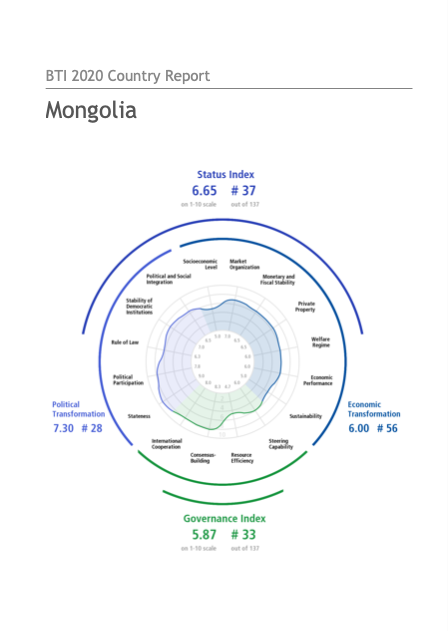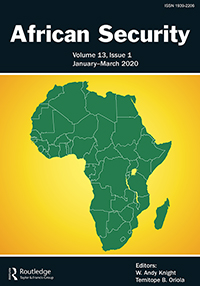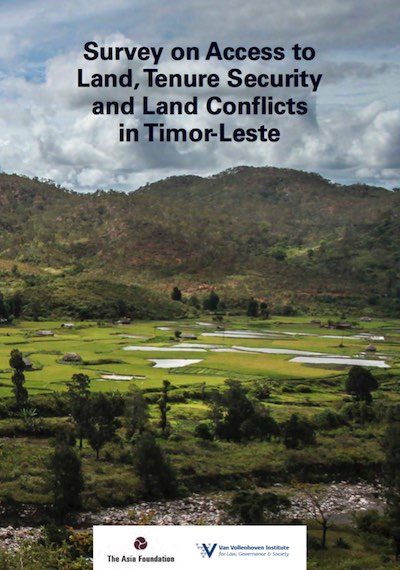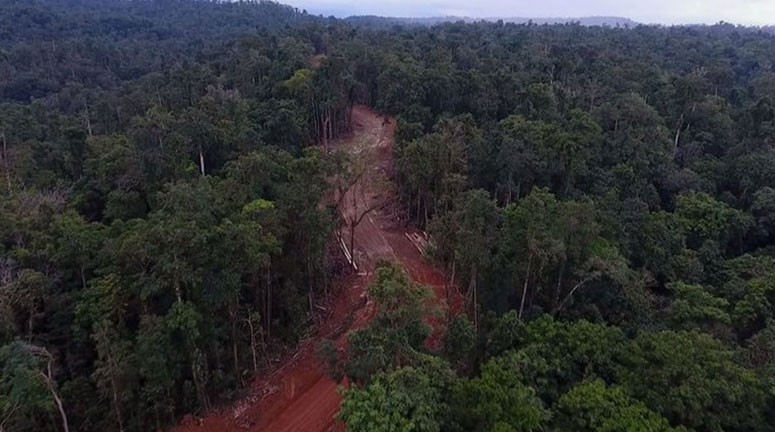BTI 2020 Country Report Mongolia
EXECUTIVE SUMMARY: In July 2017, Democratic Party candidate Khaltmaa Battulga was elected Mongolia’s new president with 50.61% of the vote, defeating his rival Miyegombo Enkhbold from the ruling Mongolian People’s Party (MPP) who received 41.16% of the vote. Importantly, 8.23% of the voters in the second round chose the none-of-the-above option, the so-called blank ballot. Mongolians believe in democracy as a guiding general principle and vision, but they have less trust in the fairness and effectiveness of political institutions.











